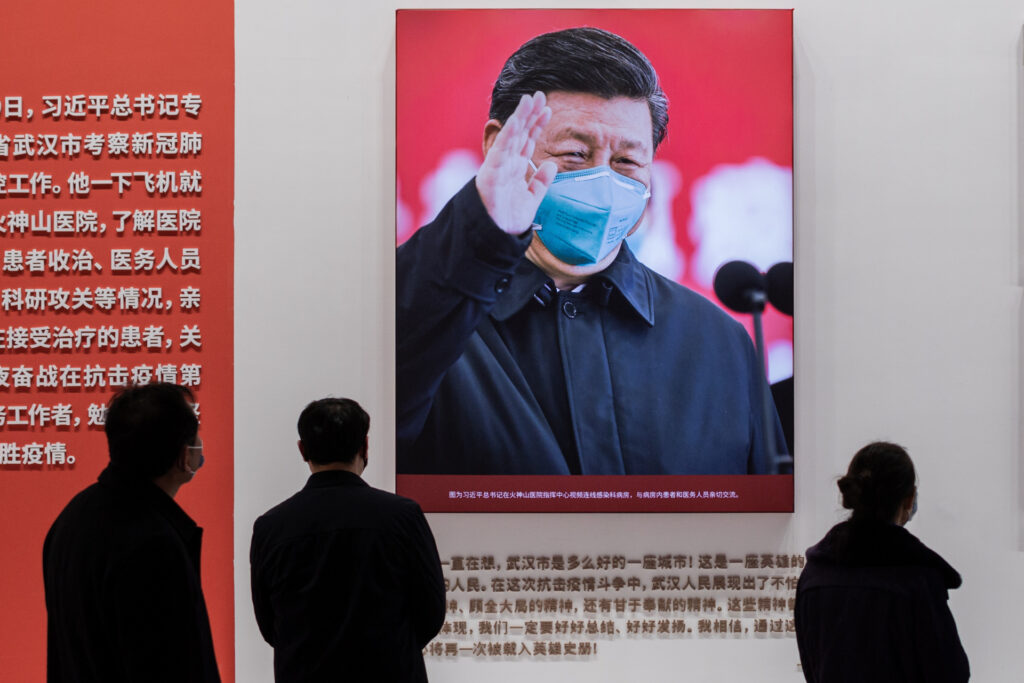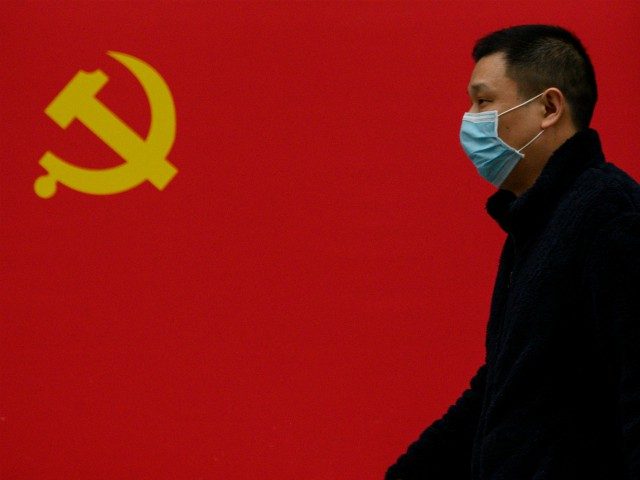Chinese state media on Sunday attempted to mollify the surprisingly large protests in several cities against proposed health care cuts by claiming insurance reforms will be skillfully executed and better for everyone in the long run.
This might not play well with the protesters, who are angry about steep benefit cuts that could make life difficult for the elderly.
Unexpectedly large protests broke out in Dalian and Wuhan last week. The latter city is now infamous as ground zero for the global coronavirus pandemic, a fact that was not unrelated to the protests, as many citizens believe the Chinese Communist Party is slashing benefits and raiding health insurance funds to cover the long-concealed costs of managing coronavirus.
Wuhan retirees were furious that their medical benefits were chopped in half, from five percent of the average pension to 2.5 percent. The controversial reforms also raised the threshold for reimbursing doctor visits, a change that is expected to be difficult for older people who require frequent visits but are not severely ill.

In this picture taken on January 15, 2021, a picture of China’s President Xi Jinping with a face mask is displayed as people visit an exhibition about China’s fight against the coronavirus. (NICOLAS ASFOURI/AFP via Getty Images)
“Elderly people often need to buy small quantities of medicine but don’t spend much on doctor visits. As a result of the medical reforms, their expenses will increase by a lot,” a Wuhan resident explained to Reuters.
Reuters quoted analysts who suggested the protests were much larger than the Chinese government anticipated because “pent-up frustrations from three years of zero-COVID measures and last year’s protests emboldened more ordinary Chinese to speak out, despite pervasive government surveillance and online censorship.”
Those analysts also suspected the Wuhan and Dalian healthcare demonstrators were emboldened by the apparent success of last winter’s demonstrations against dictator Xi Jinping’s harsh coronavirus lockdown policies, abandoned very abruptly after pent-up frustrations exploded into nationwide protest marches. There were also remarkably vigorous protests during the Chinese real estate crisis last year.
Of course, these emboldened demonstrators are still living under a brutal Communist regime, and the Washington Post noted the regime cracked a few skulls last week to remind them:
Huddled beneath umbrellas and watched by police in bright blue raincoats, the peaceful crowd sang revolutionary anthem “The Internationale” and chanted slogans calling for an explanation, according to videos of the scene shared widely online. If no resolution was reached, protesters said, then they would stage a second mass demonstration a week later.
As promised, they filled central Zhongshan Park and nearby streets Wednesday, with a second group gathering a couple of blocks away by the Wuhan Union Hospital.
This time, the authorities reacted more forcefully. In an apparent attempt to curb attendance, the city’s metro cars did not stop at the nearest station. Video showed shoving matches as police tried to contain the protests. Some tried to climb barriers to escape the melee but were pulled back by uniformed officers.
As usual, the regime also took the precaution of scrubbing videos of the protests and comments sympathetic to the protesters from China’s heavily censored social media platforms.
With similar health insurance “reforms” rolling out in a half-dozen more big cities, the Chinese Communist Party apparently decided this is not a problem that could be solved entirely with crackdowns. On Sunday, the state-run Global Times attempted some damage control by quoting “experts” who argued the urban health care reforms are inescapably necessary, the results will not be as bad as the protesters feared, and the protests are probably just a seditious Western plot to undermine the Chinese government anyway:
Industry observers said the reform, which reduces the amount deposited each month into personal accounts, doesn’t mean the reduction or loss of health insurance benefits, nor is it a move to cover COVID-19-related expenses, as some Western media asserted.
The health insurance reform is a decision that has been made after years of discussion, planning and prudent consideration and places Chinese families in a better position to cope with medical risks, and elderly people who are more susceptible to illness and incur higher medical expenses will benefit the most from the reform, observers said.
According to the Global Times apologia, healthcare accounts in China’s big cities were severely underfunded, and part of the problem was that people who “rarely see doctors” had “tens of thousands of yuan sleeping in their accounts.”
“Some Western media have deliberately linked the reform of the health insurance to COVID-19 and asserted that the reform is trying to allocate money from personal accounts to make up the deficit of the medical insurance fund. Their claims are made only to smear China and lack foundation,” the Global Times sneered.
The Global Times concluded by telling disgruntled Wuhan residents they are still better off than Americans under Obamacare, because “China has built a national basic medical insurance system covering over 1.36 billion people,” and even with the benefit cuts, China’s system will ostensibly keep citizens from going bankrupt due to health expenditures.

COMMENTS
Please let us know if you're having issues with commenting.